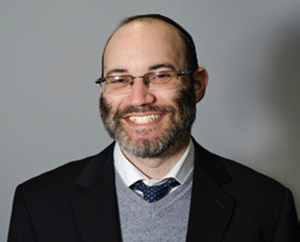
I. Average
Often, we are rightly told to strive for greatness. But that doesn’t mean we have to act like we are better than everyone else. If anything, it means we must strive for normalcy in order to achieve greatness. Rav Yaakov Kamenetsky used to say that it’s a mitzvah to be normal—of course, without compromising on halacha. Which mitzvah did he mean?
The biblical Chana prayed that her son Shmuel, who became a great prophet, would be “zera anashim, the seed of man” (1 Sam. 1:11). The Gemara (Berachot 31b) offers multiple interpretations of this strange phrase. One is that Chana prayed that her son would be muvla ba-anashim, inconspicuous among men. She asked for a son who is neither tall nor short, neither fat nor skinny, neither smart nor stupid. She wanted an average boy, whom she would dedicate to the service of God.
II. Balance
This request seems strange. Who doesn’t want an extraordinary child? One explanation, given by Rav Yaakov Reischer (Iyun Yaakov, ad loc.), focuses on the importance in life of balance. In many places, Rambam adapts Aristotle’s doctrine of the mean in advocating a middle approach to life. Rambam writes (Mishneh Torah, Hilchot Dei’ot 1:4, adapted from Touger translation):
“The straight path: This [means adopting] the midpoint temperament of each and every trait that man possesses [within his personality.] This refers to the trait that is equidistant from either of the extremes, without being close to either of them. Therefore, the early Sages instructed a man to evaluate his traits, to calculate them and to direct them along the middle path, so that he will be sound of body.
For example: he should not be wrathful, easily angered; nor be like the dead, without feeling, rather he should [adopt] an intermediate course; i.e., he should display anger only when the matter is serious enough to warrant it, in order to prevent the matter from recurring…
He should not be overly stingy nor spread his money about, but he should give charity according to his capacity and lend to the needy as is fitting. He should not be overly elated and laugh [excessively], nor be sad and depressed in spirit. Rather, he should be quietly happy at all times, with a friendly countenance. The same applies with regard to his other traits.
This path is the path of the wise. Every man whose traits are intermediate and equally balanced can be called a ‘wise man.’”
The Gemara (Sota 10a) lists five people who were born with great gifts that served as their downfall. Among them are Shimshon and his strength, Shaul and his tall neck, and others. We think that unusual gifts offer an advantage, but those gifts present challenges that must be overcome. The average person, created with balanced features and character, is more set for greatness than the exceptional person.
III. Acting Normal
Moreover, those who achieve greatness recognize their limitations and act with humility. They try to avoid the limelight. Even if they have reached a level where additional religious practices are appropriate, they keep those practices private. The Gemara (Shabbat 10a) says that R. Zeira criticized R. Yirmiyah for stopping his learning Torah to pray. R. Yirmiyah was someone for whom Torah was his occupation, Torato umnato, and his learning takes priority over prayer. Rav Eliyahu ben Chaim (Ra’anach; Ha-Noten Imrei Shefer, Tzav) explains that R. Yirmiyah knew the law but did not want to hold himself up as a great person. He felt that he should act like everyone else.
Similarly, the Gemara (Bava Metzi’a 67b) says that Ravina would eat the fruits from a property whose mortgage he owned, reducing the mortgage accordingly. Tosafot (ad loc., s.v. Ravina) ask how Ravina could do that when the Gemara says that a Torah scholar should avoid the practice. Rabbeinu Tam answers that Ravina did not wish to adopt the mantle of a Torah scholar. He saw himself as a regular Jew and behaved accordingly.
The Mishnah (Berachot 16b) records a debate whether a groom on his wedding night, who is exempt from reciting Shema (although nowadays we do not follow this), may say the prayer anyway. The Sages say yes while R. Shimon ben Gamliel says that “not everyone who desires to take up the name [of Hashem] may do so.” The Gemara (ibid., 17b) concludes that all agree that you should not appear to act more conspicuously pious than everyone else. The debate only occurs in specific cases where it isn’t clear whether the practice is conspicuous.
IV. Act According to Your Position
Some people, due to their public positions, need to act differently. The Gemara (Shabbat 145b) says that the Torah scholars in Bavel wore special clothes to signify their stature. Rashi explains that otherwise people would not accord them respect. Their communal positions required acting differently. People in those positions still must maintain balance in their lives, but their position requires standing out in certain ways. But balance remains the ideal, the goal for everyone.
This attitude of balance and humility, Rambam (ibid. 1:5) tells us, emerges from the mitzvah to walk in Hashem’s ways, ve-halachta bi-drachav. This is the mitzvah to be normal, to meet all religious obligations but in a way that does not stick out, that blends in with people. Exceptionalism breeds arrogance. Through balanced character and practices we achieve holiness.
By Rabbi Gil Student
Rabbi Gil Student is editor of TorahMusings.com.













